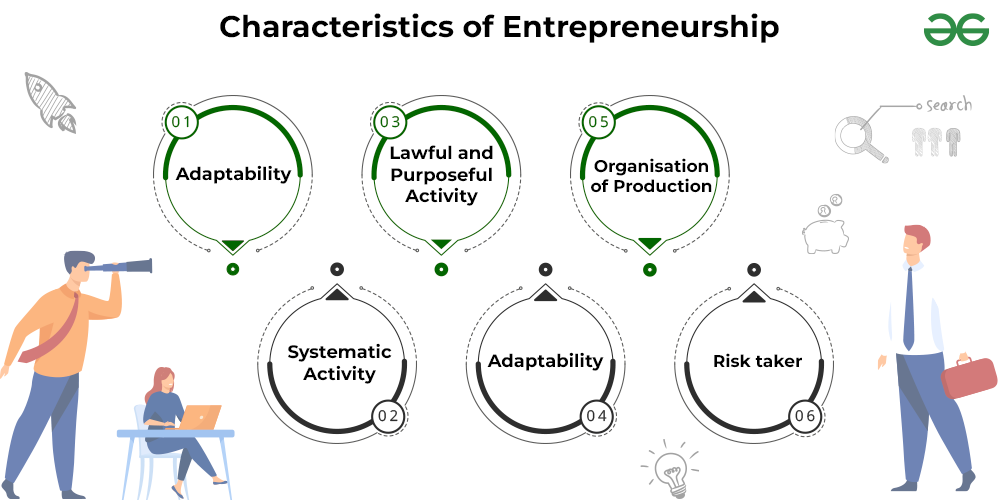Gina Raimondo, the innovative Rhode Island governor and former U.S. Commerce Secretary, has been a pivotal figure in shaping key economic reforms under the Biden administration. Known for her dynamic policies, Raimondo is dedicated to enhancing U.S. competitiveness while advocating for the hardworking American families. Throughout her tenure, she has implemented significant initiatives, such as raising the minimum wage and making community college tuition-free, which reflect her commitment to equitable economic growth. Her leadership during times of crisis, particularly in managing supply chains disrupted by the pandemic, showcases her ability to navigate complex challenges and foster collaboration with international partners. Raimondo’s approach emphasizes the necessity of change, advocating for systemic improvements that benefit all citizens, not just the privileged few.
As a forward-thinking leader, Gina Raimondo exemplifies how transformative strategies can elevate economic standards and promote job creation at the grassroots level. Her role as governor of Rhode Island, coupled with her national impact as Commerce Secretary, highlights a focus on revitalizing industries and championing workforce development. By pushing for fiscal responsibility and innovative partnerships, she has laid a foundation for long-term economic stability that prioritizes the needs of everyday Americans. In the evolving landscape of U.S. policy, Raimondo’s influence is evident in her commitment to not only tackling immediate challenges but also addressing the underlying issues affecting U.S. competitiveness on a global scale. Her vision aligns with broader initiatives aimed at building a resilient economy that works for everyone.
Gina Raimondo’s Vision for Economic Reforms
Gina Raimondo’s approach to economic reform is rooted in her belief that change is essential for progress. As the former governor of Rhode Island, she implemented several transformative policies designed to boost the state’s economy. Her commitment to cutting taxes yearly and raising the minimum wage showcases her dedication to ensuring that the benefits of economic growth reach the average citizen. By making community college tuition-free, she opened avenues for education and job training, which are crucial components of a competitive workforce. Raimondo’s philosophy emphasizes that fostering economic growth does not have to come at the expense of the vulnerable, but rather must empower them.
Raimondo’s policies align closely with the Biden administration’s initiatives, aimed at ensuring a fair playing field for all Americans. As she pointed out during a recent public forum, proactive solutions are necessary to adapt to the evolving landscape of America’s economy. By advocating for a balance between regulatory reform and support for the workforce, her economic strategies reflect a broader vision for strengthening U.S. competitiveness on the global stage. Her experiences have led her to understand that economic reforms must be inclusive and equitable to truly succeed.
Impact of the Biden Administration on U.S. Competitiveness
Under the Biden administration, significant initiatives have been introduced to enhance U.S. competitiveness, a goal that Gina Raimondo played a pivotal role in shaping. The Infrastructure Investment and Jobs Act, spearheaded by Raimondo, exemplifies a comprehensive strategy to not only rebuild America’s infrastructure but also to create millions of jobs, underscoring the administration’s commitment to economic recovery and growth. By prioritizing investment in critical sectors like technology and clean energy, these initiatives aim to fortify the U.S. economy against foreign competition.
Furthermore, policies such as the CHIPs and Science Act are designed to bolster domestic semiconductor production, addressing concerns over reliance on foreign supply chains. Raimondo’s insights, drawn from her tenure as Commerce Secretary, highlight the idea that a robust manufacturing base is vital for national security and economic stability. Her emphasis on fostering international relationships, as discussed during recent forums, reflects a nuanced understanding that U.S. competitiveness relies not just on domestic growth but also on strong alliances and collaborative efforts globally.
Balancing Economic Growth and Social Responsibility
Gina Raimondo firmly believes that economic initiatives should not ignore social responsibilities. During her time in public office, she has successfully merged social programs with economic policies, reflecting her understanding that the workforce of today must be well-supported to drive growth. By advocating for comprehensive childcare plans, she tackled long-standing barriers that prevent many individuals, especially women, from fully participating in the labor market. This holistic approach underscores the importance of creating inclusive policies that benefit both the economy and the workforce.
This perspective is critical in discussions surrounding economic recovery in the aftermath of the COVID-19 pandemic. Raimondo’s experience as the governor of Rhode Island has equipped her with firsthand insights into the challenges faced during crises, such as the spike in unemployment claims. Her advocacy for substantial stimulus packages during turbulent times highlights her commitment to not only restoring economic stability but also ensuring that no demographic is left behind. By viewing social investments as vital components of economic policy, Raimondo’s approach emphasizes that true economic growth is achievable through inclusivity and support.
The Future of Rhode Island Under Raimondo’s Policies
Gina Raimondo’s legacy as Rhode Island’s governor continues to influence the state’s strategic direction. Her policies, characterized by aggressive tax cuts and regulatory reforms, have laid a foundation for long-term economic growth. The transformation of Rhode Island into a model for educational access, through initiatives like free community college, attracts both residents and businesses looking for a skilled workforce. As the state navigates post-pandemic recovery, these measures are increasingly relevant in discussions about sustainable economic development.
Looking forward, the success of Raimondo’s policies poses a critical question: Can other states replicate this model? The attention given to Rhode Island’s advancements can serve as a blueprint for fostering economic resilience in similar regions. By maintaining a focus on economic inclusivity and progressive reforms, Raimondo’s vision for a thriving Rhode Island can further elevate the state’s standing in the national conversation about competitiveness and growth.
Raimondo’s Approach to Crisis Management and Economic Resilience
Crisis management has been a significant part of Gina Raimondo’s political career, especially highlighted during her leadership through the COVID-19 pandemic. Her proactive measures, which included a substantial economic stimulus to offset job loss, underscore her commitment to economic resilience. She strategically prioritized sectors impacted by the pandemic, ensuring that recovery initiatives were not just broad strokes but tailored to the specific needs of the workforce. Raimondo’s emphasis on understanding complex supply chains during the crisis demonstrates her practical approach to governance in times of uncertainty.
In the realm of economic resilience, the ability to adapt policies quickly and effectively is crucial. Raimondo’s efforts in pivoting Rhode Island’s economy towards digital solutions and remote work capabilities helped the state recover swiftly from economic downturns. Her foresight in investing in technology initiatives exemplifies the agility required in modern governance, especially as economic landscapes shift. The lessons learned during her tenure could inform future leaders about effectively managing economic crises while maintaining a focus on overall growth and development.
Raimondo’s Policies and their Long-Term Effects on U.S. Competitiveness
Under Gina Raimondo’s guidance, the economic landscape has undergone significant changes that promise long-term benefits for U.S. competitiveness. One of her notable contributions was participating in passing the CHIPs and Science Act, aimed at reversing the dependency on foreign semiconductor production. By prioritizing domestic manufacturing and research, Raimondo has helped position the U.S. to regain its edge in technology industries crucial for future economic strategies. This proactive stance reflects a keen understanding of the global economic environment and the necessity for the U.S. to lead in innovation.
However, the effectiveness of these policies lies not only in legislation but also in execution. As Raimondo emphasized, maintaining partnerships with international allies is essential for the success of such initiatives. The intertwined nature of global economies necessitates a comprehensive approach, ensuring that U.S. interests are safeguarded while simultaneously fostering international cooperation. The long-term effects of Raimondo’s policies can thus be measured not only by immediate economic outcomes but also by the sustainability of these international relationships.
The Importance of Fairness in Economic Policy as Advocated by Raimondo
Gina Raimondo’s vision for economic policy inherently includes a strong emphasis on fairness and opportunity for all citizens. She has consistently stated that economic reforms should prioritize those who have historically been left behind. By advocating for living wages and accessible education, she ensures that economic growth does not merely enrich a select few but raises the standard of living for all, thus promoting an equitable society. Raimondo’s insights into the role of government in providing opportunity resonate throughout her policy initiatives, emphasizing that economic growth must be inclusive.
This focus on fairness also extends to the Biden administration’s broader agenda, which aligns closely with Raimondo’s own principles of governance. As she often highlights, the idea that ‘no one should be left behind’ is central to maintaining the American Dream. By integrating social programs that address systemic inequalities into economic policies, Raimondo is paving the way for a more just and competitive economy. Her commitment to fairness not only supports struggling communities but also fortifies the overall economy by ensuring that all citizens have the means to participate fully in it.
Lessons from Raimondo’s Tenure as Commerce Secretary
Gina Raimondo’s tenure as Commerce Secretary provided critical lessons on navigating complex economic challenges. From managing supply chains disruptions during the COVID-19 pandemic to prioritizing domestic production of semiconductors, her leadership showcased adaptability in the face of uncertainty. The emphasis on collaboration with international partners and enhancing domestic manufacturing capabilities illustrates a comprehensive approach necessary in today’s interconnected economy. Raimondo’s experiences have unveiled the importance of a well-coordinated strategy that addresses both immediate challenges and long-term goals.
Raimondo’s advocacy for the CHIPs and Science Act highlights another lesson learned—proactive government intervention can drive innovation. By investing in critical technologies, the U.S. is poised to regain its technological leadership. This realization translates well into how future administrations might handle economic policy, with an eye on balancing market forces with strategic government initiatives to safeguard national interests. Her ability to analyze and adapt to evolving economic landscapes can guide policymakers in crafting responsive and effective economic strategies.
Gina Raimondo’s Role in Shaping Future Economic Policies
As a prominent figure in U.S. economic reform, Gina Raimondo’s role in shaping future economic policies is becoming increasingly significant. Her focus on promoting innovation, fostering educational accessibility, and ensuring social equity demonstrates a holistic understanding of what drives economic success. Raimondo’s strategies prioritize not just immediate recovery, but sustained growth that integrates social needs with fiscal responsibility. Through her commitment to cooperative governance, she encourages other leaders to adopt similar principles in their policymaking.
In shaping future economic policies, following Raimondo’s example could mean greater emphasis on building consensus among stakeholders across various sectors. Her tenure illustrates that successful reform requires collaboration, transparency, and a willingness to embrace change. By fostering an inclusive dialogue around economic policy, future leaders can better equip the nation to face the challenges of a complex global economy, ensuring that U.S. competitiveness remains robust. Raimondo’s approach could inspire a new generation of political leaders to prioritize comprehensive and compassionate economic policies.
Frequently Asked Questions
What policies did Gina Raimondo implement as Rhode Island governor?
As the governor of Rhode Island, Gina Raimondo implemented significant economic reforms, including annual tax cuts, raising the state minimum wage, and making community college tuition-free. She also streamlined regulations by cutting 30% of them, aimed at fostering economic growth and improving the overall business environment in the state.
How did Gina Raimondo contribute to the Biden administration’s initiatives?
Gina Raimondo played a crucial role in the Biden administration, particularly through her leadership in shaping the Infrastructure Investment and Jobs Act. She emphasized the importance of strengthening supply chains and building international relationships, such as partnerships in Southeast Asia, to enhance U.S. competitiveness in the global market.
What are the economic reforms supported by Gina Raimondo during her political career?
Throughout her political career, Gina Raimondo has championed numerous economic reforms, including cutting taxes in Rhode Island, increasing the minimum wage, and promoting educational access through free community college initiatives. Her focus has been on ensuring fairness and opportunity for all Americans.
How has Gina Raimondo addressed U.S. competitiveness on the global stage?
Gina Raimondo has actively addressed U.S. competitiveness by advocating for domestic production of critical technologies, such as semiconductors, essential for national security. By bolstering supply chains and strengthening alliances through the Biden administration, she aims to position the United States as a leader in innovation and economic strength.
Why did Gina Raimondo emphasize fairness in her economic policies?
Gina Raimondo emphasizes fairness in her economic policies because of her deep-rooted belief in supporting the ‘little guy.’ Her family’s immigrant background instilled the value of hard work, motivating her to ensure that economic opportunities are accessible to regular Americans throughout her tenure as Rhode Island governor and U.S. Commerce Secretary.
What role did Gina Raimondo play in addressing supply chain issues during her time as Commerce Secretary?
As Commerce Secretary, Gina Raimondo was pivotal in addressing supply chain disruptions exacerbated by the COVID-19 pandemic. She developed critical spreadsheets for understanding the complexity of supply chains, particularly for essential goods, while collaborating with international partners to enhance the U.S. supply chain resilience.
Which legislative act did Gina Raimondo help shape to enhance U.S. competitiveness?
Gina Raimondo was integral in shaping the CHIPs and Science Act, which aims to boost domestic production of semiconductors and other high-tech goods crucial for U.S. national security and economic competitiveness, responding to the critical need to reduce reliance on foreign production.
What challenges did Gina Raimondo face during her political career?
Throughout her political career, Gina Raimondo faced challenges such as navigating a 50-50 Senate during her time in the Biden administration, addressing the economic impacts of the COVID-19 pandemic, and balancing compromises while striving to implement significant economic reforms and policies.
How does Gina Raimondo’s approach to economic reforms differ from traditional methods?
Gina Raimondo’s approach to economic reforms involves a willingness to challenge traditional practices, advocating for necessary changes that sometimes involve ‘breaking things’ to achieve better outcomes. She focuses on innovative solutions, such as labor market programs that address childcare needs to support women’s participation in the workforce.
What economic impact did Gina Raimondo’s policies have on Rhode Island?
Gina Raimondo’s policies, including tax cuts and raising the minimum wage, have positively impacted Rhode Island’s economy by attracting businesses, improving job opportunities, and making education more accessible. Her reforms aimed to create a more vibrant economic landscape that supports growth and prosperity for all residents.
| Key Point | Details |
|---|---|
| Break Things to Make Change | Raimondo emphasizes that positive change sometimes requires difficult decisions, akin to ‘breaking things’. |
| Tax Cuts and Minimum Wage | During her governorship, she cut taxes, raised the minimum wage, and eliminated many regulations. |
| Focus on Fairness | Raimondo advocates for policies that ensure fairness and create opportunities for average Americans. |
| Response to COVID Supply Chain Issues | Under her leadership, the Biden administration worked to understand and rectify supply chain problems exacerbated by the pandemic. |
| CHIPs and Science Act | This initiative aims to enhance domestic semiconductor production, essential for national security. |
| Fiscal Responsibility | Raimondo stressed that for every dollar spent by the government, $10 from the private sector was secured. |
| Criticism and Acknowledgments | Raimondo acknowledged mistakes in compromises made but highlighted significant achievements in a divided government. |
| Defending the Stimulus Act | She defended the size of stimulus measures during COVID, suggesting smaller amounts might lead to worse outcomes. |
Summary
Gina Raimondo’s approach to transformative change emphasizes that while progress may require difficult decisions, it should not come at the expense of those it aims to help. Her experiences as a leader, particularly during the pandemic, illustrate her commitment to creating a fair and equitable economic landscape, reinforcing the importance of balancing policy innovation with social responsibility.









Leave a Reply